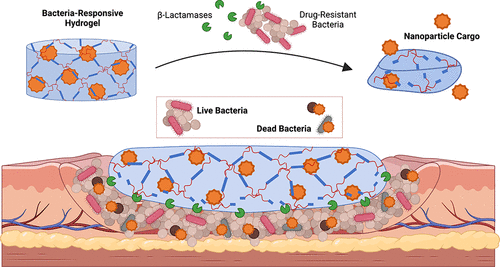
Overuse of antibiotics is one of the main reasons for bacterial drug resistance. Providing the right amount at the right time can help slow the process, but judgment can be cumbersome. Therefore, in this new study, researchers at Brown University developed a smart material that releases its drug load only when bacteria are detected.
This hydrogel is composed of a cross-linked polymer network, which can contain a large number of nanoparticles, such as antibiotics, which will be tightly "locked". However, this material is designed to make these polymers known as β- Lactamases are enzymes that can degrade. These enzymes are produced by many pathogenic bacteria. This in turn releases nanoparticles.
Anita Shukla, lead researcher of the study, said: "the interesting thing is, β- Lactamases are actually a major cause of antibiotic resistance because they destroy β- Lactam antibiotics, which are some of the most commonly used antibiotics. But we have adopted this bacterial defense mechanism and used it against bacteria. "
The team tested the technique in laboratory Petri dishes and pig skin samples, using fluorescent nanoparticles that can be clearly tracked when released. Sure enough, the hydrogel produced β- Bacteria with lactamases release their payloads while other bacterial enzymes do not degrade this structure. This shows that the technology can be selective for some bacteria rather than others.
"We have developed an intelligent drug delivery system triggered by bacteria," Shukla said. "Our hypothesis is that technologies like this can reduce the amount of drugs required for effective treatment, as well as the possibility of side effects and drug resistance."
Similar controlled-release hydrogels have been tested as an anti-cancer way to release anti-cancer drugs through the reaction to the acidity and temperature of the tumor microenvironment. In this case, the team said that the new hydrogel could be used as a wound dressing to effectively release antibiotics as soon as the infection began.
The study was published in acs applied materials and interfaces 》In magazines.